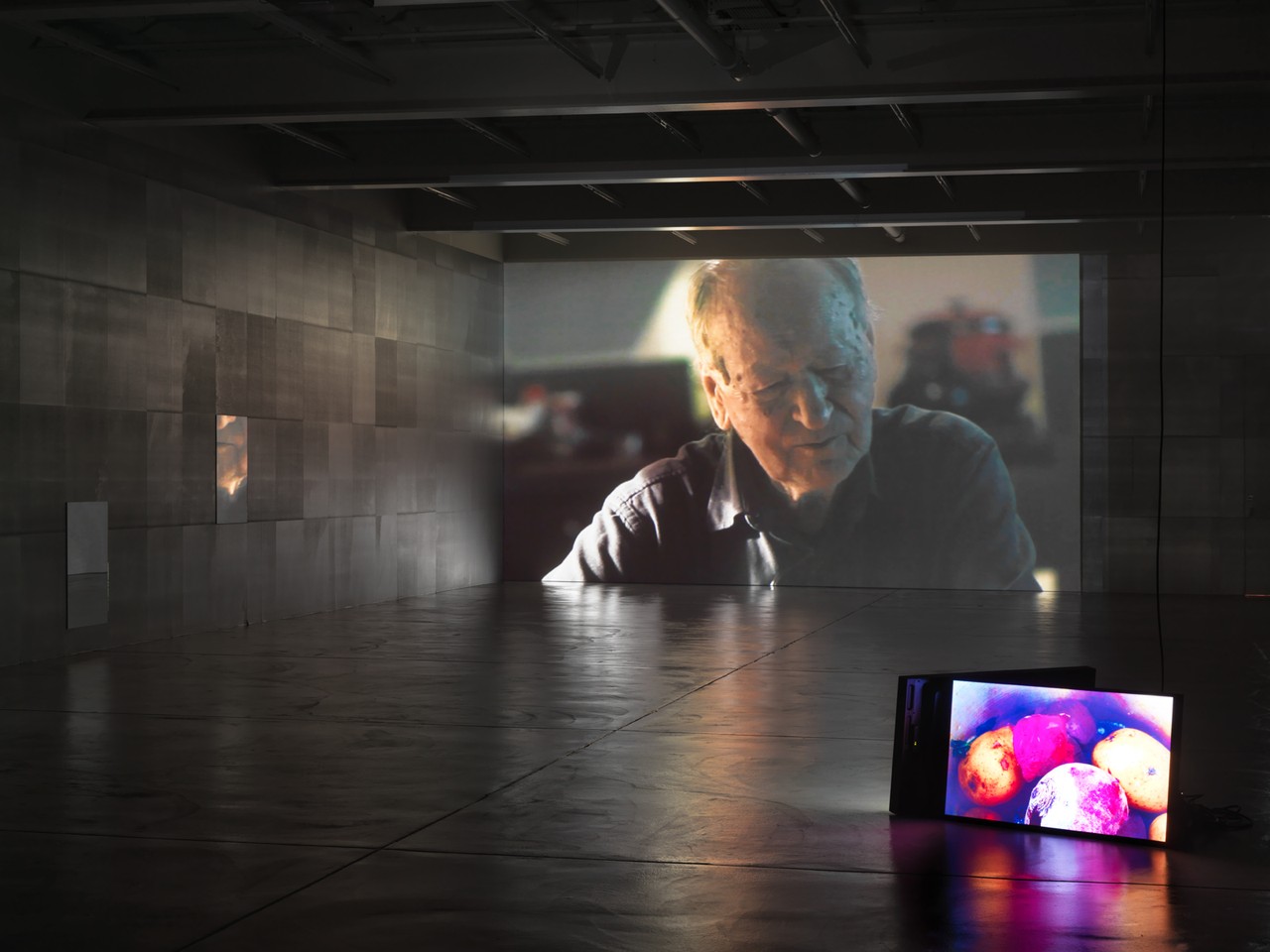Douglas Gordon
I Had Nowhere To Go
05 Nov 2016 - 21 Jan 2017
DOUGLAS GORDON
I Had Nowhere To Go
5 November 2016 – 21 January 2017
Galerie Eva Presenhuber is delighted to announce the first exhibition featuring the new film installation „I Had Nowhere To Go“ by Scottish artist Douglas Gordon.
„I Had Nowhere To Go“ by the filmmaker and video artist Douglas Gordon is based on Jonas Mekas's diary.
It's been over 70 years since Jonas Mekas left his village in Lithuania to escape Nazi persecution. He was 22 years old. Today he is one of the last surviving members of a generation displaced. He is also one of the greatest documenters of the human experience.
„I Had Nowhere To Go“ is his story of exile; brought on by the horrors of the twentieth century, propelled by the need to create rather than destroy, to move on, to make sense... or not, where bewilderment is more honest.
For his new film project and the installative video work Douglas Gordon has recorded Jonas Mekas reading from „I Had Nowhere To Go“ and from here he assembled the most important steps in his life and the most emotional situations. Douglas Gordon has composed a few pictures among the black on the screen and in the room.
The presence of the authentic voice of the man himself injects a deeply personal tone and provokes powerful responses. But the complexities and time involved in capturing this footage should not be underestimated.
It might be the redemptive power of art, or maybe just the human condition, but in a world where displacement is a fact of life, the Jonas Mekas story has something to say to everyone.
Douglas Gordon, born in 1966 in Glasgow, Scotland, is one of the most influential contemporary video artists. Performances, sculptural installations and conceptual texts also number among his modes of expression. With his analyses and reconstructions of images drawn from collective memory and everyday culture, he lays bare fundamental patterns of perception. His oeuvre is dominated by polarities such as life and death, good and evil, guilt and innocence, as well as temptation and fear. Gordon won the Turner Prize in 1996 among many other art prizes and the following year he participated in the Venice Biennale. He has been Professor of Film at the Städelschule in Frankfurt am Main since 2010. He lives and works in Berlin and Glasgow.
I Had Nowhere To Go
5 November 2016 – 21 January 2017
Galerie Eva Presenhuber is delighted to announce the first exhibition featuring the new film installation „I Had Nowhere To Go“ by Scottish artist Douglas Gordon.
„I Had Nowhere To Go“ by the filmmaker and video artist Douglas Gordon is based on Jonas Mekas's diary.
It's been over 70 years since Jonas Mekas left his village in Lithuania to escape Nazi persecution. He was 22 years old. Today he is one of the last surviving members of a generation displaced. He is also one of the greatest documenters of the human experience.
„I Had Nowhere To Go“ is his story of exile; brought on by the horrors of the twentieth century, propelled by the need to create rather than destroy, to move on, to make sense... or not, where bewilderment is more honest.
For his new film project and the installative video work Douglas Gordon has recorded Jonas Mekas reading from „I Had Nowhere To Go“ and from here he assembled the most important steps in his life and the most emotional situations. Douglas Gordon has composed a few pictures among the black on the screen and in the room.
The presence of the authentic voice of the man himself injects a deeply personal tone and provokes powerful responses. But the complexities and time involved in capturing this footage should not be underestimated.
It might be the redemptive power of art, or maybe just the human condition, but in a world where displacement is a fact of life, the Jonas Mekas story has something to say to everyone.
Douglas Gordon, born in 1966 in Glasgow, Scotland, is one of the most influential contemporary video artists. Performances, sculptural installations and conceptual texts also number among his modes of expression. With his analyses and reconstructions of images drawn from collective memory and everyday culture, he lays bare fundamental patterns of perception. His oeuvre is dominated by polarities such as life and death, good and evil, guilt and innocence, as well as temptation and fear. Gordon won the Turner Prize in 1996 among many other art prizes and the following year he participated in the Venice Biennale. He has been Professor of Film at the Städelschule in Frankfurt am Main since 2010. He lives and works in Berlin and Glasgow.

